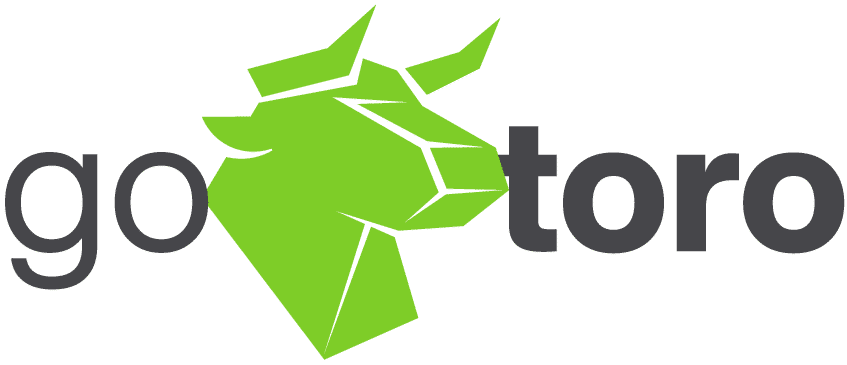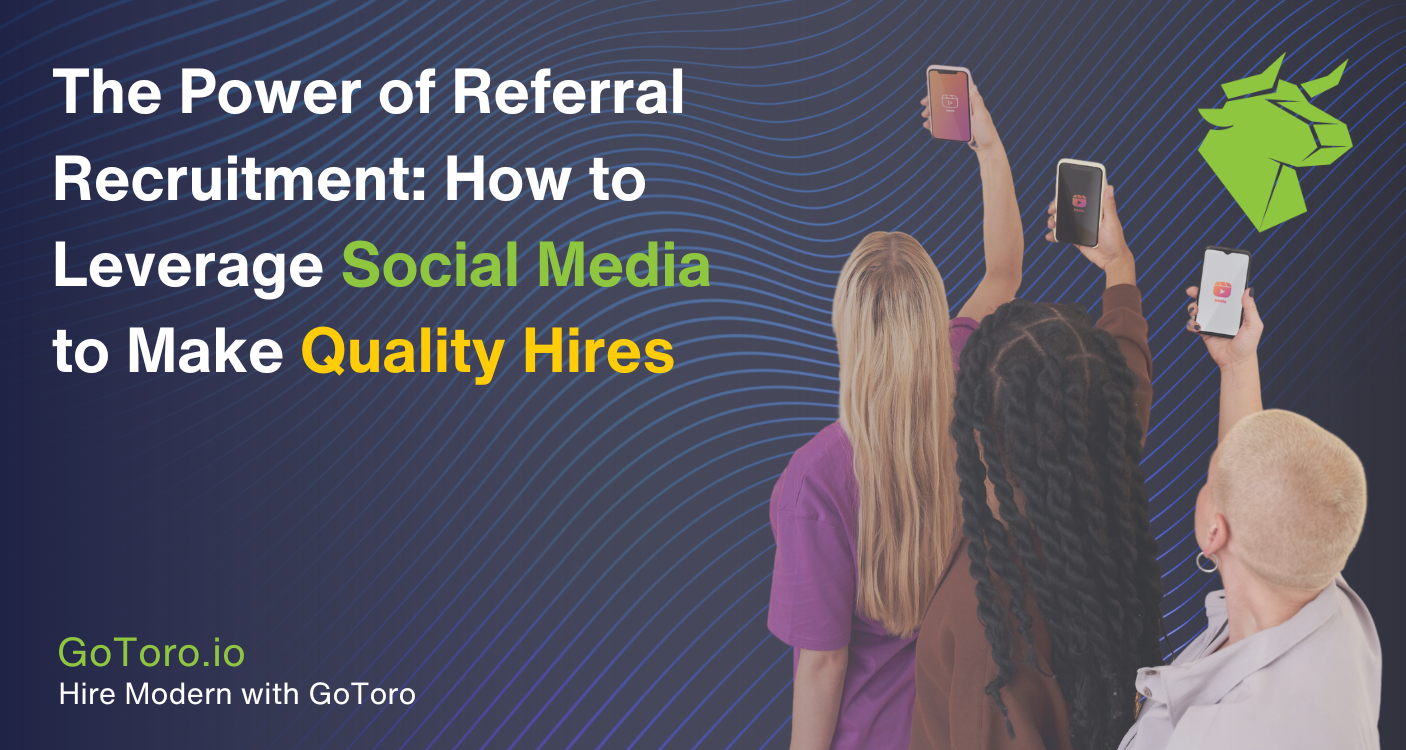In the dynamic landscape of talent acquisition, referral recruitment has emerged as a cornerstone strategy for organizations aiming to attract and retain top talent. This approach, deeply rooted in leveraging personal and professional networks for hiring recommendations, has seen its importance magnified in the digital age. The advent of social media has introduced a potent tool into the recruiter’s arsenal, allowing for the expansion of traditional networks into vast, interconnected webs of potential candidates.

Leveraging social media for enhancing recruitment processes represents a significant evolution in how companies approach talent acquisition. Platforms such as LinkedIn, Twitter, and Facebook not only facilitate a broader reach but also enable recruiters to tap into the rich, nuanced networks of their existing employees and industry connections. This digital expansion of referral recruitment practices offers an unprecedented opportunity to source candidates who are not just qualified but are also a cultural fit for the organization, all while accelerating the hiring process and reducing associated costs.
The central thesis of our exploration is the potential of social media to amplify referral recruitment efforts significantly. By integrating these digital tools, companies can secure quality hires more efficiently, leveraging the trust and credibility inherent in personal recommendations. This strategy not only enriches the talent pool with candidates who are more likely to excel in their roles but also fosters a culture of engagement and retention from the outset.
The Benefits of Referral Recruitment

Overview of Referral Recruitment Benefits
The benefits of referral recruitment are manifold, reflecting its status as one of the most effective hiring strategies in today’s competitive job market. Foremost among these advantages is the ability to attract higher quality hires. Candidates brought in through referrals often come with a pre-validated skill set and work ethic, endorsed by individuals familiar with the organization’s culture and expectations. This pre-screening effect can lead to a more seamless integration into the team and a higher likelihood of job satisfaction.
Another significant benefit is the faster time-to-fill for open positions. Referral recruitment streamlines the hiring process by bypassing some of the initial steps typical of traditional recruiting, such as sifting through a deluge of resumes from unknown applicants. Instead, referrals bring forth candidates who are already part of the way through the vetting process, thanks to the endorsement of their referrer.
Improved employee retention further underscores the value of referral recruitment. Candidates hired through this method tend to stay with the company longer, likely due to the initial connection via a trusted network and the enhanced fit with the organization’s culture. 45% of referral hires stay longer than four years, compared to only 25% of job board hires (Zippia, 2023). This longevity contributes to reduced turnover costs and a more stable, engaged workforce.
Comparative Advantage
Compared to traditional recruitment methods, referral recruitment offers a distinct competitive edge. Traditional approaches often rely heavily on external advertising and cold outreach, methods that can be both time-consuming and costly. Moreover, these techniques may not always yield candidates who are a good fit, resulting in higher turnover rates and the associated costs of repeated hiring processes.
In contrast, referral recruitment leverages existing relationships and the trust built within those networks to identify potential candidates. This method not only increases the likelihood of a cultural and skillset match but also enhances the candidate’s interest and engagement from the very first interaction. The personal connection inherent in a referral adds a layer of credibility and trust that is hard to replicate through other recruitment strategies.
The Role of Employee Networks
Employee networks play a pivotal role in the success of referral recruitment. By tapping into the diverse and extensive networks of their current workforce, organizations can access a wider pool of potential candidates. These networks include not only the immediate connections of employees but also second-degree connections that extend the reach even further.
Leveraging employee networks for referral recruitment also serves to engage the current workforce in the hiring process, fostering a sense of ownership and contribution to the company’s growth. This inclusive approach can enhance employee satisfaction and loyalty, creating a positive feedback loop that benefits both the organization and its employees.
In summary, the strategic use of social media to enhance referral recruitment efforts represents a forward-thinking approach to talent acquisition. By harnessing the power of digital networks and the inherent trust of personal referrals, companies can navigate the complexities of the modern job market more effectively, securing quality hires with greater efficiency and fostering a culture of engagement and retention.
The Rise of Social Media in Recruitment

Impact and Trends
The integration of social media into recruitment strategies has revolutionized the way organizations approach talent acquisition. The impact of social media on referral recruitment is both profound and multifaceted, fundamentally altering the landscape of hiring. In recent years, statistics have illuminated the growing reliance on social media for recruitment purposes. For instance, a substantial percentage of recruiters now use social media platforms to vet candidates before making a hiring decision, highlighting the pivotal role these platforms play in the modern recruitment process.
The trends indicate a shift towards a more proactive and engaging recruitment model. Social media allows companies to not only post job openings but also to build their brand and engage with potential candidates on a more personal level. This shift has made referral recruitment more dynamic, expanding the reach of referrals beyond immediate networks to include a vast array of connections on social media.
Furthermore, the analytics tools available on these platforms enable recruiters to measure the effectiveness of their strategies in real-time, adjusting their approach to maximize the impact. The ability to directly interact with potential candidates, coupled with the power to track and analyze engagement, has made social media an indispensable tool in the recruiter’s toolkit.
Social Media Platforms for Recruitment
When it comes to referral recruitment, not all social media platforms are created equal. Each platform offers unique advantages that can be leveraged to enhance the recruitment process.
- LinkedIn: Often considered the gold standard for professional networking, LinkedIn is tailor-made for referral recruitment. The platform facilitates connections between professionals and provides a rich array of features for posting jobs, searching for candidates, and promoting company culture. LinkedIn’s environment encourages sharing and engaging with content, making it an ideal platform for expanding referral networks and reaching passive candidates.
- Facebook: With its vast user base, Facebook offers an unparalleled reach for job postings and referral opportunities. The platform’s groups and community pages allow companies to target specific demographics and interests, making it easier to reach potential candidates in niche markets. Additionally, Facebook’s casual atmosphere encourages sharing among friends and family, amplifying the reach of referral recruitment efforts.
- Twitter (X): Twitter’s real-time nature makes it a powerful tool for referral recruitment. Companies can use hashtags to increase the visibility of their job postings and engage with potential candidates through direct communication. The platform’s brevity and immediacy make it ideal for announcing openings, sharing company news, and fostering a sense of community among followers.
The New Frontier: Leveraging Instagram & TikTok for Younger Audiences
- Instagram: Instagram’s visual platform is perfect for companies looking to showcase their culture and values through engaging imagery and stories. It’s particularly effective for building a strong brand identity that resonates with a younger demographic. By utilizing hashtags, Instagram Live, and interactive stories, organizations can vividly highlight their workplace environment, celebrate key achievements, and promote job openings in an engaging manner. This approach not only enhances the employer’s brand but also attracts candidates who are in search of workplaces that align with their personal values and aspirations.
- TikTok: TikTok has rapidly become a significant player in social media recruitment, especially for reaching Gen Z and younger millennials. Its short-form video format allows for creative and authentic glimpses into company life, job roles, and the people behind the brand. Employers can leverage TikTok to run recruitment campaigns, share day-in-the-life videos from employees, and use trending hashtags to increase visibility. The platform’s algorithm is particularly adept at pushing content to relevant viewers, making it a powerful tool for reaching potential candidates who may not be actively job searching but are open to the right opportunities. TikTok encourages a level of creativity and engagement that can set companies apart in the competitive landscape of talent acquisition.
Strategies for Leveraging Social Media for Referral Recruitment

The digital age has transformed how organizations approach talent acquisition, with referral recruitment taking a front seat in innovative hiring strategies. Leveraging social media enhances this approach, enabling companies to reach wider networks, engage potential candidates more dynamically, and streamline the recruitment process. Below are key strategies for leveraging social media to boost referral recruitment efforts effectively.
Creating a Social Media Policy for Employees
A clear social media policy is pivotal for guiding employees on how to use social media platforms for referral recruitment. This policy should outline acceptable practices, maintaining the organization’s brand image, and the legal boundaries regarding privacy and confidentiality. By establishing guidelines, employees can confidently participate in the recruitment process, sharing job openings and company culture highlights within their networks, without risking professional missteps.
Empowering Employees as Brand Ambassadors
Employees can be the most authentic and persuasive brand ambassadors. Training them to share their positive experiences and job openings on their social media channels can significantly amplify your referral recruitment efforts. Providing them with ready-to-post content, such as graphics, videos, or text blurbs, ensures that the company’s message is consistent and engaging. Recognizing and rewarding employees who actively contribute to spreading the word can further motivate them to participate in these initiatives.
Incentivizing Referrals
Incentives are a powerful motivator in referral recruitment. Implementing a data-driven approach to determine referral bonuses or rewards ensures fairness and effectiveness. Analyzing past referral hires to understand which roles or departments benefit most from referrals can help tailor the incentive program. Transparency about the referral process and rewards not only encourages participation but also fosters a culture of trust and recognition.
Utilizing LinkedIn for Professional Networking
LinkedIn stands out as a crucial platform for professional networking and referral recruitment. Encouraging employees to keep their profiles updated and to actively participate in industry-related groups can increase your company’s visibility. Sharing job openings on LinkedIn, whether through personal profiles, company pages, or industry groups, can attract both active and passive candidates. Employees can also use direct messages to personally reach out to potential referrals, making the approach more personal and effective.
Engaging Potential Candidates on Social Media
Engagement is key to converting potential candidates into applicants. Social media platforms allow for more casual and direct interactions. Posting engaging content about your company culture, hosting live Q&A sessions, and responding promptly to inquiries can make potential candidates feel valued and more inclined to explore job openings. Tailoring messages to highlight how a role aligns with a candidate’s skills and career aspirations can further pique their interest.
Leveraging Job Openings to Gain Followers
Job openings can serve as valuable content to grow your social media following. By presenting these opportunities in creative and engaging ways, such as through behind-the-scenes videos, employee testimonials, or interactive posts, companies can attract individuals who are not only interested in the roles but who also engage with the brand, potentially becoming future candidates or referrers.
Empowering Your Social Media Following
Extending referral recruitment beyond the immediate employee network to include the broader social media following multiplies its effectiveness. Encouraging followers to share job openings with their networks or refer friends can exponentially increase the reach of your recruitment efforts. Providing clear instructions on how to refer candidates and recognizing contributions from outside the organization can foster a community of supporters eager to help find the next great hire.
Integrating these strategies into your social media plan can significantly enhance your referral recruitment efforts, making social media an invaluable tool in the modern recruiter’s toolkit. By fostering a culture that encourages participation in recruitment, leveraging technology and data to incentivize contributions, and engaging with both employees and the broader community, companies can navigate the complexities of talent acquisition in the digital age more successfully.
Best Practices for Referral Recruitment on Social Media
Focusing on Quality
When implementing referral recruitment strategies on social media, it’s crucial to prioritize quality over quantity. High-quality referrals are more likely to result in successful hires who fit well with the company culture and have longer tenures. Encourage employees to refer contacts they genuinely believe are a good match for the company, emphasizing the importance of alignment with the organization’s values and needs over simply increasing the number of referrals.
Transparency and Rewards
Clear communication about the referral recruitment process and the associated rewards is essential for maintaining trust and motivation among your employees and social media followers. Transparency regarding how referrals are evaluated and the timeline for rewards can help manage expectations and reinforce the program’s integrity. It’s also important to regularly update participants about the status of their referrals to keep them engaged and informed.
Effectiveness Monitoring
Measuring the success of your social media referral recruitment efforts is vital for understanding their impact and identifying areas for improvement. Track metrics such as the number of referrals received, the conversion rate of referrals to hires, and the retention rates of referral hires compared to other recruitment channels. This data can help refine your strategy and demonstrate the value of investing in social media-based referral programs.
- 40% of company hires come from employee referrals (Jobvite, 2023)
- 84% of companies use employee referral programs. Referral hires are 40% more likely to be retained after one year than non-referral hires. (Jobvite, 2023)
Challenges and Considerations
Potential Pitfalls
Navigating the challenges of referral recruitment on social media requires careful consideration of diversity concerns and the maintenance of professional boundaries. Ensuring that your referral program doesn’t inadvertently lead to a homogenous workforce is crucial. Encourage a diverse range of referrals by emphasizing the importance of inclusivity in your communications and training materials. Additionally, maintaining professional boundaries on social media helps prevent any perceptions of impropriety or favoritism.
Legal Compliance
Understanding the legal aspects of referral recruitment and social media usage is non-negotiable. This includes compliance with employment laws, privacy regulations, and anti-discrimination statutes. Make sure legal professionals review your referral program’s policies to steer clear of legal issues. In addition to educating your employees about these guidelines to foster a culture of compliance.
Balancing Professional and Personal Interactions
Maintaining appropriate boundaries while engaging with potential candidates on social media is essential. While social media offers a more casual platform for interaction, it’s important to keep communications professional and respectful. Maintaining this balance helps candidates feel respected and valued during recruitment. It creates a positive image of your company.
In conclusion, mastering referral recruitment in today’s digital age means embracing a broad spectrum of social media platforms. From LinkedIn’s professional network to TikTok’s dynamic engagement with Gen Z, each platform offers unique opportunities to connect with top talent. By strategically leveraging these tools, you can not only enhance your recruitment efforts but also position your company as a desirable place to work for upcoming generations. Embrace these changes, and watch your talent pool transform, bringing in fresh, innovative minds ready to contribute to your success.


